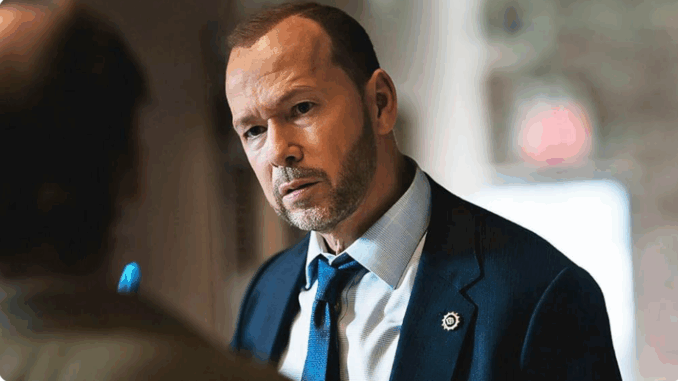
When a familiar character is removed from their comfort zone, the dramatic and emotional payoff can be powerful. That’s exactly what’s happening as Danny Reagan moves from Blue Bloods into its spinoff, Boston Blue. This isn’t just a change of workplace; it’s a test of character, relationships, and narrative rhythm. Here’s a deeper look at why this creative decision is so compelling, both artistically and commercially.
Unlocking New Layers of Character
For over a decade on Blue Bloods, Danny was portrayed as a fiery, instinct-driven detective whose family—the Reagans—provided a strong anchor. In Boston Blue, many of those anchors disappear: no Sunday dinners, no longtime colleagues who trust him unconditionally. This forces Danny to confront himself in a rawer state—making mistakes, questioning his instincts, and learning to adapt. It’s fertile ground for Donnie Wahlberg to deliver nuanced performances that balance arrogance with vulnerability.
A Fresh Source of Conflict: Method vs. Environment
Danny’s trademark has always been “gut-driven policing,” often bending or breaking the rules. In Boston, those tactics may clash with a different departmental culture, leadership style, or policing philosophy. These conflicts aren’t just dramatic—they’re transformative. Viewers will be drawn to the central question: will Danny bend to his new surroundings, or hold fast to his old ways? The process of finding out is where real character evolution lives.
Boston as a Character in Its Own Right
Every city carries its own cinematic DNA. Boston’s history, immigrant communities, crime networks, and police-community relations provide a distinctive storytelling palette. By placing Danny as the audience’s “outsider lens,” Boston Blue can both expand the Blue Bloods universe and carve out an identity that feels unique, rather than derivative.
Shifting the Storytelling Structure
Blue Bloods leaned heavily on episodic procedural cases and family dynamics. Boston Blue has the chance to recalibrate, combining weekly case-of-the-week plots with serialized arcs that unfold across a season. Danny’s “fish out of water” journey is tailor-made for serialized storytelling—adaptation takes time, setbacks, and gradual breakthroughs, all of which create long-term emotional investment.
Building New Relationships While Honoring Old Ones
The biggest risk of removing Danny from the Reagan family orbit is losing the emotional core that longtime fans love. The solution lies in building strong, new dynamics: a rookie partner he mentors, a tough superior officer he clashes with, or a Boston community he learns to understand. Occasional check-ins with the Reagan clan—phone calls, cameos, or crossover cases—can balance the need for continuity while keeping the focus on Danny’s new world.
Tackling Bigger Social Themes
As an “outsider,” Danny becomes a natural vehicle to explore themes like departmental politics, cultural clashes in policing, community trust, and the psychological toll of law enforcement. These issues give Boston Blue intellectual weight and ensure it’s not just a police procedural, but also a commentary on contemporary challenges.
A Chance to Refresh the Look and Tone
A new setting allows the creative team to experiment visually and tonally. Boston’s moody weather, historic streets, and distinctive neighborhoods could inspire a darker, more atmospheric aesthetic. This shift gives the franchise a fresh cinematic identity while highlighting Danny in an unfamiliar backdrop.
Breathing Creative Life Into the Franchise
After so many seasons, any long-running character risks becoming formulaic. Relocating Danny pushes writers to design new conflicts, motivations, and arcs. That creative challenge is a safeguard against repetition and ensures the spinoff feels vital rather than redundant.
Risks and How to Mitigate Them
Of course, there are risks: alienating loyal fans by separating Danny from the Reagans, pushing the character too far from his essence, or diluting the balance between the spinoff and the flagship series. The remedy lies in balance—preserve Danny’s core values, weave in Reagan connections sparingly, and invest heavily in Boston-based characters with real depth.
Storyline Possibilities That Showcase the Concept
-
Pilot episode: Danny’s arrival in Boston leads to immediate clashes with local officers over jurisdiction.
-
Midseason arc: A case connects back to Danny’s past in New York, prompting a Reagan family crossover moment.
-
Psychological spotlight: Danny faces harsh criticism from his new colleagues, forcing self-reflection on his policing style.
-
Mentorship storyline: Danny reluctantly mentors a younger cop, creating a mirror of his own early career.
Conclusion
Making Danny a “fish out of water” isn’t just a narrative gimmick—it’s a bold creative strategy. It provides Wahlberg with rich material, challenges the writers to innovate, and rewards fans with fresh stakes and deeper storytelling. If Boston Blue balances respect for Danny’s core identity with the courage to explore new ground, it could stand as both a worthy spinoff and a dynamic evolution of the Blue Bloods legacy.